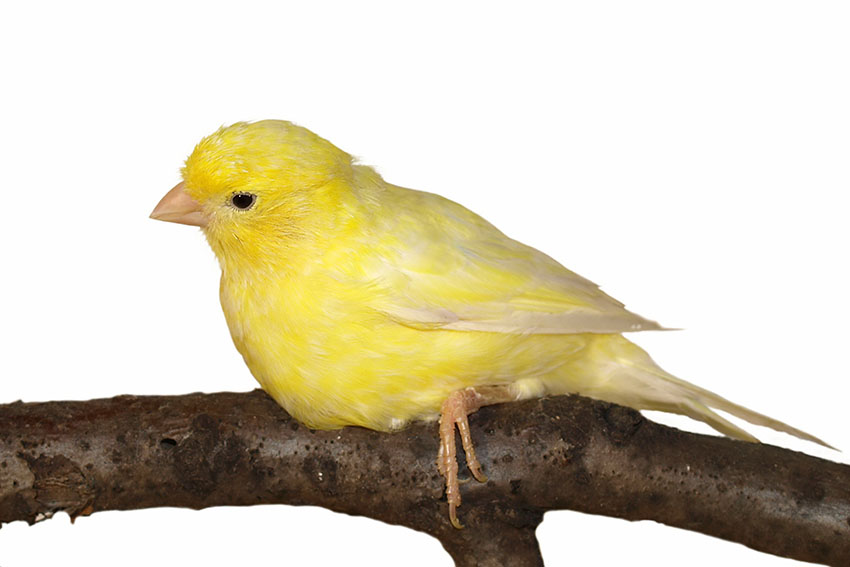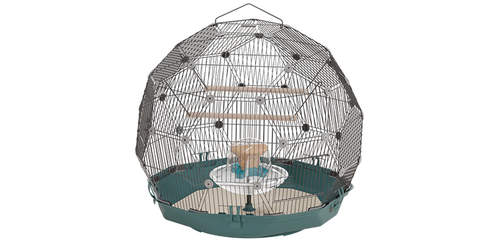Good health depends on several factors - the relative hardiness of the species, a suitable diet, a stress-free and clean environment, and plenty of warmth. But even with all these boxes ticked, problems can occur.
Spotting a Sick Finch
The first clues that a bird is unwell are usually visual. A normally lively bird will become lethargic, a flighty bird will become docile, and the bird will sit quietly on a perch instead of hopping, fluttering and feeding in its usual manner. A poorly bird will also try to keep away from its neighbours, and will eat very little or not at all. There will be tell-tail signs in the finch’s posture too – head tucked back ‘behind the wing’, a change in posture, drooping tail or wings drooping, fluffed-up feathers, half-closed eyes, panting, or squatting on the cage floor. There may also be evidence of illness in the form of loose or discoloured droppings, messy vents or stains on the breast feathers from regurgitated food.

A change in your pet bird's behaviour or appearance could be rooted in illness
Treating a Sick Finch
Once you’ve identified a bird as ill, you need to act swiftly. You also need a spare cage, as the ill bird will need solitary confinement to stop the suspected disease from spreading. If the bird is a singleton Canary, he can remain in his cage.
Once you’re certain there is a problem, call the vet. You can’t afford to delay, as many sick birds head towards death with alarming speed. Place a heat lamp in the quarantine cage, as sick birds are unable to maintain their usual high body heat. If you don’t have a lamp, place the cage near a radiator, and cover it to prevent drafts. Put food and water in the cage, even if your bird has not shown any interest in feeding. Try tempting him with soft foods such as berries and wax worms.
Don’t dive in with a medicinal cure until you’re absolutely certain what the problem is. Some ailments are more obvious than others. The following pages cover the commoner diseases and other health issues; but consulting a vet is essential.



Comments
Trudi, 24 July 2021
Hi ive found your writting and advice very useful ,I have recently bought 3 budgies and 2 canaries they came in the same cage and get along really well .
Kaylan, 11 March 2020
My canaries are all in the same cage. one is nesting and wont leave the nest often, the name is quarts. I have another that is breathing heavy. and sits there most the day, its name is Jasper. I have another that has his wings down, showing his back, its name is Amber.
Darren, 4 August 2019
Hi there . We had 2 finches untill we put Hatchwells Natural Nesting Material for Pet Birds in there cage . Within a couple of days both have died . Any feedback would be great thanks.
Chi, 10 April 2019
Help!my finch has puffed up and bops only once watery poop and my finch will still eat but it is almost as if she falls asleep pleaze help! My finch went back to normal for about a week and is now puffed up all over again